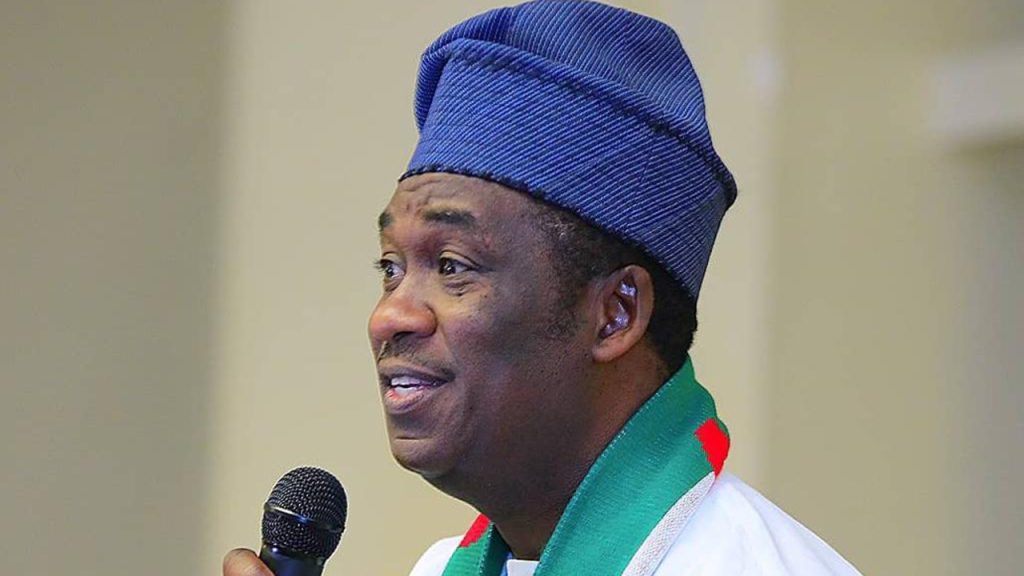The Deputy Governor of Lagos State, Obafemi Hamzat, voiced his frustration over the exorbitant electricity bills he received from the state’s utility company, Eko DisCo. He revealed that his bill had skyrocketed from N2.7 million in March to a staggering N29 million in April, a more than tenfold increase. This revelation came during a roundtable discussion in Victoria Island between the Rural Electrification Agency (REA) and the Lagos State Government, focused on signing a Memorandum of Understanding for the electrification of rural communities. Hamzat, representing Governor Babajide Sanwo-Olu at the event, decried the “crazy billing” practices of the DisCo and highlighted the plight of ordinary citizens struggling under the weight of similar inflated charges. He emphasized the importance of electricity as a fundamental necessity for survival and lamented the widespread billing challenges faced by residents. He further disclosed his unsuccessful attempts to obtain a prepaid meter, despite having already paid for one, highlighting the bureaucratic hurdles consumers face in trying to avoid estimated billing.
Adding to his personal experience, Hamzat shared the equally distressing story of a resident in the Coker Aguda area of Surulere, who received an electricity bill of N2.8 million, exceeding his annual rent of N2 million. This stark comparison underscored the absurdity of the situation and the disproportionate burden placed on citizens. Hamzat’s anecdote served to illustrate the widespread suffering caused by estimated billing, a practice he strongly condemned. He stressed the urgent need to address these billing issues and ensure fair and accurate charges for electricity consumption. The deputy governor’s outspoken criticism reflects the growing public discontent with the electricity distribution companies and their billing practices, which often leave consumers feeling exploited and helpless.
The roundtable discussion, however, focused on a more positive aspect of power supply – the electrification of rural communities in Lagos. Hamzat commended the Commissioner for Energy, Biodun Ogunleye, for facilitating the partnership with the REA to bring solar power to these underserved areas. This initiative aims to bridge the electricity gap and provide much-needed power to communities that have long been deprived of this essential service. The move towards solar electrification is a significant step towards sustainable energy solutions and improving the quality of life for residents in these communities.
Commissioner Ogunleye expressed his enthusiasm for the partnership with the REA, highlighting the opportunities it presents for residents who have never had access to a reliable electricity supply. He emphasized the importance of Lagos as a major player in Nigeria’s development and expressed confidence in the positive impact this partnership will have on the state’s rural communities. The REA’s involvement signifies a commitment to expanding electricity access across the country, with Lagos being a key focus area. The collaboration between the state government and the REA is expected to bring about significant improvements in the lives of those living in underserved rural areas.
The Managing Director of the REA, Abba Aliyu, revealed that specific communities have already been identified for the rural electrification program. This targeted approach ensures that the most vulnerable and underserved areas are prioritized in the electrification efforts. Aliyu further disclosed the agency’s plans to build an 8-megawatt capacity floating solar plant at the University of Lagos, subject to the state government’s approval. This ambitious project demonstrates the REA’s commitment to exploring innovative and sustainable energy solutions to address the nation’s power needs. The floating solar plant, if approved, would not only provide clean energy to the university but also serve as a model for future renewable energy projects.
In conclusion, while the Deputy Governor’s personal experience and the anecdotal evidence he presented highlight the urgent need to address the widespread issues of exorbitant and often inaccurate estimated billing by electricity distribution companies, the partnership between the Lagos State Government and the REA represents a significant stride towards a more sustainable and equitable energy future for the state. The focus on rural electrification, coupled with the potential for innovative projects like the floating solar plant, signals a positive shift towards addressing the long-standing challenges of power access and reliability. The successful implementation of these initiatives will not only improve the lives of countless residents but also contribute to the overall economic development of Lagos State. The collaboration between the government and the REA demonstrates a proactive approach to tackling the complex issue of electricity access, with the potential for long-term positive impact on communities across the state.














